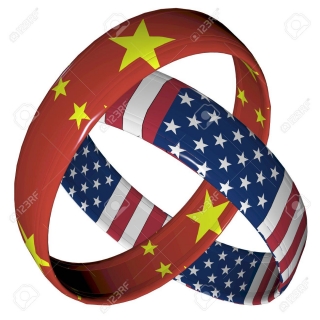


The National Development and Reform Commission of the People's Republic of China (NDRC) has trimmed the number of items on its negative list from 117 to 106.
China's Negative List is a government-issued list that identifies areas and industries in which foreign investment is restricted or forbidden. It's an important part of China's effort to manage and gradually liberalize its foreign investment policy.
The Chinese authorities partially liberalize eight national measures, including telecommunications services, TV production, pharmaceuticals, internet information services for drugs and medical devices, and forest seed imports.
Additionally, 17 local measures were removed, such as traffic logistics, freight forwarding, freight information services, forest resource loss identification, vehicle leasing services.
What does "trade war" mean?
Generally speaking, a trade war is an economic conflict between two or more countries due to extreme protectionism on one end. It implies the creation of trade barriers, such as tariffs, which result in counter-barriers, escalating import costs, and hence the cost of living.
An economic conflict between the United States (US) and China began early in 2018, when President Donald Trump set trade barriers on China, claiming unfair commercial practices and intellectual property theft from the Asian giant. China took retaliatory action, imposing tariffs on multiple US goods, such as automobiles and soybeans. Tensions escalated until the two countries signed the US-China Phase One trade deal in January 2020. The agreement required structural reforms and other changes to China's economic and trade regime and pretended to restore stability and trust between the two nations. However, the Coronavirus pandemic took the focus out of the conflict. Yet, it is worth mentioning that President Joe Biden, who took office after Trump, kept tariffs in place and even added some additional levies.
The return of Donald Trump to the White House as the 47th US President has sparked a fresh wave of tensions between the two countries. During the 2024 election campaign, Trump pledged to impose 60% tariffs on China once he returned to office, which he did on January 20, 2025. With Trump back, the US-China trade war is meant to resume where it was left, with tit-for-tat policies affecting the global economic landscape amid disruptions in global supply chains, resulting in a reduction in spending, particularly investment, and directly feeding into the Consumer Price Index inflation.
Source; Fxstreet
Federal Reserve Chair Jerome Powell on Thursday responded to a Trump administration official's demands for information about cost overruns for a renovation project at the central bank's Washington hea...
The United States Commerce Department is set to impose preliminary anti-dumping duties of 93.5% on graphite imported from China after concluding the materials, which are a key component for batteries,...
U.S. President Donald Trump's decision to ramp up arms shipments to Ukraine is a signal to Kyiv to abandon peace efforts, Russia said on Thursday, vowing it would not accept the "blackmail" of Washing...
Federal Reserve Governor Adriana Kugler said the US central bank should keep interest rates steady "for some time," citing accelerating inflation as tariffs begin to push up prices. "Given the stabil...
Unemployment claims fell 7,000 to 221,000 in the week ending July 12, compared with the median estimate of 233,000, according to Labor Department data. The estimated range was 220,000-240,000 accordi...
Gold steadied and was set for a moderate weekly loss as investors assessed the outlook for Federal Reserve rate cuts after resilient US jobs and retail data eased concerns about the economy. Bullion traded below $3,340 an ounce in early Asian...
Australian equities notched a record high as Asia-Pacific markets tracked Wall Street gains on the back of strong U.S. economic data reports and a slew of better-than-expected corporate earnings. Australia stock markets climb to record...
The Japanese yen rose to around 148 per dollar on Friday, rebounding from a significant drop in the previous session, as investors digested the latest inflation data. Headline inflation ticked down to 3.3% in June 2025 from 3.5% in May, yet it...
 U.S. consumer prices increased by the most in five months in June amid higher costs for some goods, suggesting tariffs were starting to have an...
U.S. consumer prices increased by the most in five months in June amid higher costs for some goods, suggesting tariffs were starting to have an...
 European stocks erased early gains and closed mostly lower on Tuesday as markets continued to assess how potential tariffs from the US may hurt...
European stocks erased early gains and closed mostly lower on Tuesday as markets continued to assess how potential tariffs from the US may hurt...
 President Donald Trump's renewed calls for Federal Reserve Chair Jerome Powell's resignation have prompted investors to protect portfolios against...
President Donald Trump's renewed calls for Federal Reserve Chair Jerome Powell's resignation have prompted investors to protect portfolios against...
 The annual core consumer price inflation rate in the United States, which excludes volatile items like food and energy, ticked up to 2.9% in June...
The annual core consumer price inflation rate in the United States, which excludes volatile items like food and energy, ticked up to 2.9% in June...